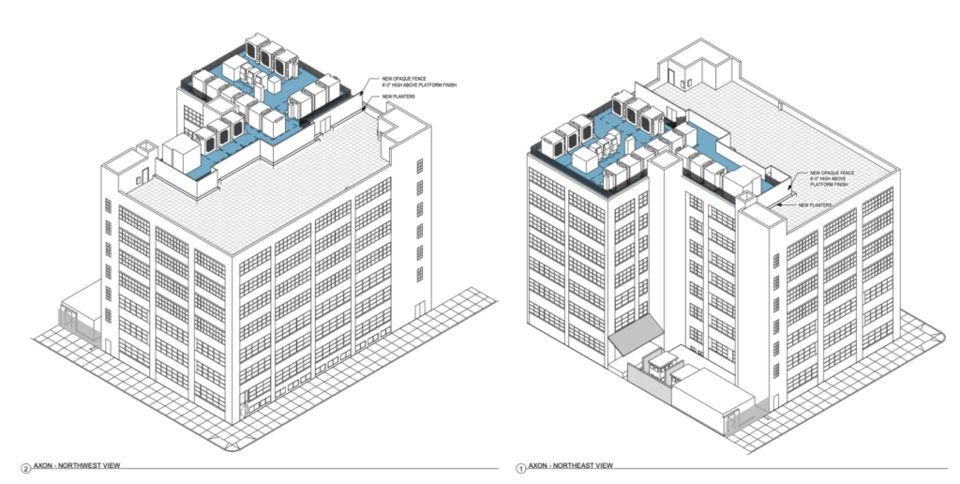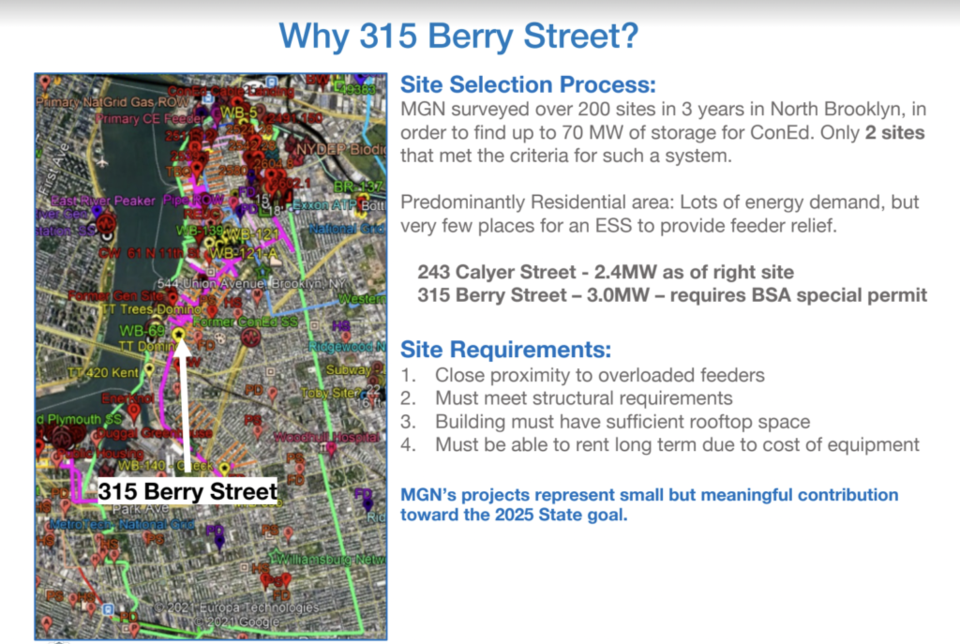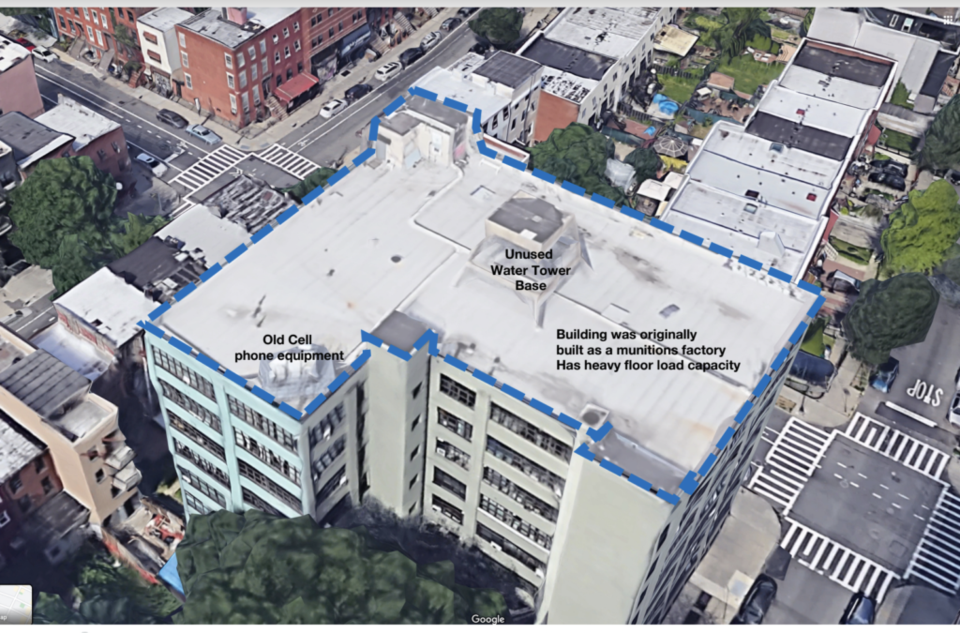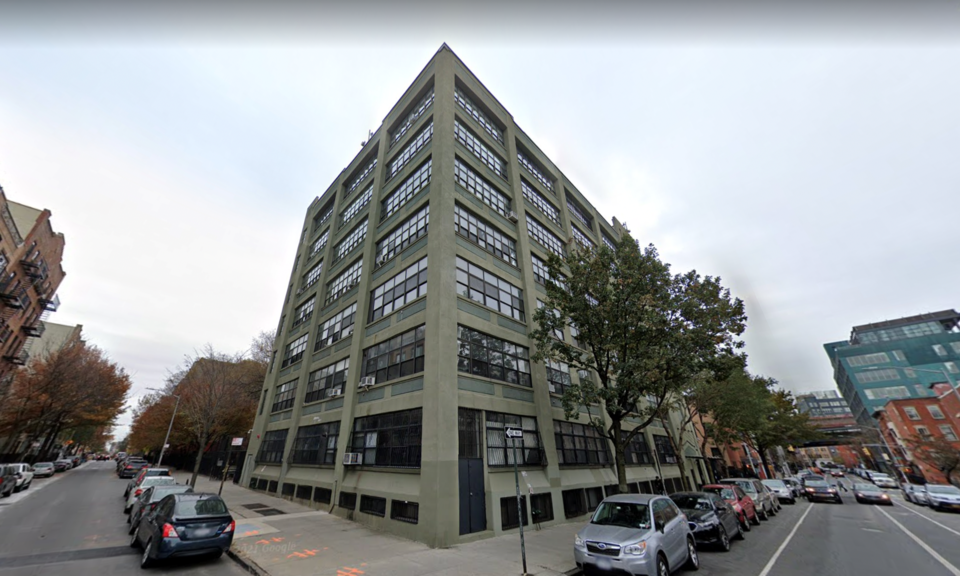New York City is set to consider a landmark proposal that allows an energy company for the first time ever to install lithium-ion batteries atop a residential building in the city as a backup source of energy -- part of a larger push to meet New York's green energy goals and replace fossil fuels with renewables.
But, some residents who live near where these batteries would be installed are concerned about the project's safety and are fighting tooth-and-nail to halt the plan.
Batteries to help ease Williamsburg's electric network
Company MicroGrid Networks (MGN) wants to install 15 lithium-ion batteries on the roof of 315 Berry St. in Williamsburg to support the local electric network.
The project requires a special permit from the NYC Board of Standards and Appeals (BSA), which is considering the proposal in January.
MGN is contracting with Con Edison as part of a larger effort to reduce the strain on infrastructure like its Water Street Substation, which serves the area and is one of the oldest networks.

The Water Street Substation is on Con Edison's list of "Tier 2 networks" which are those it deems most in need of load relief in New York City, MGN said.
The station has a capacity of approximately 375MW. The 315 Berry St. project would add 3MW of storage to that system.
Battery storage systems popping up all over NYC
The project comes amid a global turn to battery energy storage systems that has seen them popping up all over the country. New York leaders have named energy storage as an important component of the state's clean energy plan, with an energy storage goal of 6,000 MW by 2030.
This means, in NYC, companies are desperately (and creatively) searching for spaces to fit large battery storage systems in a scarce and expensive real estate market, as New Yorkers switch to electric, and the need for more energy rapidly grows.
You can now find lithium ion batteries atop the Barclays Center, a hotel and in converted parking lots. Right now, MGN has two battery storage facilities under construction and seven under permitting across NYC, with the hopes of seeing more than 100 across the city.
"Large batteries will become as ubiquitous in our buildings and businesses and neighborhoods as they currently are in our pockets.” MGN Founder Montgomery Bannerman told Bloomberg in 2021.

However, this would be the first time a battery storage system of this size would be installed on a residential rooftop in New York.
If a special permit for the 315 Berry St. project is approved by the BSA, energy companies like MGN hope it will pave the way for more battery systems to be placed on residential rooftops across New York City.
"It establishes a precedent that it's OK," MGN Chief Operating Officer Tim Dumbleton told BK Reader.
But, thanks to a major breakdown in community relations between MGN, the local community board and 315 Berry St. tenants, the landmark issue has turned into an ugly fight, with Brooklyn's Community Board 1 (BKCB1) issuing a recommendation against the approval of the special permit.
At a BKCB1 Environmental Protection Committee meeting Tuesday, the community doubled down on their opposition to the project. Meanwhile MGN's Dumbleton told BK Reader residents seemed to be "willfully ignorant" regarding their plans, safety reports and outreach.
Williamsburg residents not comfortable with the risk
Residents at the 49-unit building at 315 Berry St. said they were first advised of the project through a 2020 email indicating that the building was getting solar panels. Solar panels are no longer a part of the project.
In April 2021, MGN did a presentation on the lithium-ion battery storage project at a BKCB1 meeting. Residents' first concern was the structural integrity of the building — which has suffered from a crumbling facade—and the four-to-six month estimated construction disturbance.
The community board's other concern was the fire risk.
The words "lithium-ion batteries" have become synonymous with fire. So far this year, the Fire Department of New York (FDNY) said 191 fires, 140 injuries, and six fatalities are attributed to lithium-ion batteries, most linked to the batteries in e-bikes and e-scooters.

The community was told that the batteries being installed on their roof, "unlike other lithium batteries, do not catch fire," according to an MGN presentation.
The project uses Fluence batteries with lithium iron phosphate chemistry, which MGN said is the safest technology available. Tesla recently announced it’s switching from lithium-ion battery cells to lithium iron phosphate batteries.
However residents have since become afraid after a 2021 fire involving lithium iron phosphate batteries at a Beijing mall killed two firefighters.
"This has not ever been done before, but MGN is saying we're risking it and let's see what happens," 315 Berry St. resident Olivia Silver said at the BKCB1 meeting Tuesday.
MGN Director of Project Management and Safety Rebecca Bar told BK Reader that no substantive reports about the cause or details of the Beijing fire had yet become available.
"Beijing is not very transparent right now with releasing reports and I haven't seen anything official come out."
FDNY weighs in on 315 Berry
The FDNY has issued a "Letter of No Objection" to the BSA regarding the project, but only after a protracted back-and-forth with MGN, in which the energy storage company was forced to significantly change its plans.
"It is the Department’s understanding that this large installation will provide energy to the utility grid and that it has been placed on a building rooftop because of the scarcity of available ground locations in the community," the FDNY told BK Reader.
If the battery system were to catch fire, it would require an estimated 30,000 gallons of water per hour to extinguish it, the FDNY said. It has requested the BSA includes seven additional fire safety measures for the project, including a fire alarm, water spray system and security enclosures.

At the meeting Tuesday, residents also expressed fears that the roof — which they say already leaks rain — could not handle the water weight.
MGN has supplied letters from two engineers who believe the building—which originally served as a munitions factory and is built with reinforced concrete—can handle the weight.
But the company has not been able to convince the community that the project is a good idea, or reassure them about the risks.
"I'm all for going all in on renewables for a new era," CB1 EPC Chair Steve Chesler said at Tuesday's meeting. "But to put a risky system above residential buildings is not going to help us get there."

Steve Silver, a painter who has lived in a rent-controlled unit on the top floor of 315 Berry St. since 1980, said the cost-benefit of gaining 3MW of energy storage in exchange for residents' risk didn't make sense to him.
"They just want to line their pockets with tremendous money from ConEd and the city, and that's what it's all about," Silver said, pointing out that MGN is majority-owned by companies Perfect Power LLC and California-based investment firm SER Capital Partners.
Tenant Paige Stevenson said, if 315 Berry St. didn't fight back, there would be a safety concern for the whole city. "If we don't fight it, it's going to be a precedent," Stevenson said.
MGN's Dumbleton responded that there's a risk in everything—from Teslas to gas pipes—but that it's about "judgement of the risk."
"I understand the fear -- but when is the fear rational and when is it irrational?"
"We got to a point in the process where the FDNY is comfortable with this installation, and it's not an easy place to get to with the FDNY," Bar added.
"The job of determining the fire risk is the fire department's job, it's not our job necessarily."
They said they were open to community outreach and difficult conversations. But when BK Reader asked if MGN would be willing to return to the community board to address concerns, Dumbleton said they'd have to "talk about it internally."
BSA to consider the project in Jan 2023
Meanwhile, 315 Berry St. landlord Richard Herbst told BK Reader he had no idea the issue would become so controversial.
"At this point, I fully trust the process and trust the authorities to do the right thing, and I will go with whatever they decide," Herbst said.
He said he accepted the deal thinking it was good for the community and the environment, and that the "onslaught" from tenants had already cost him more than he was ever going to get in rent from leasing the rooftop to MGN — a figure he said was "much less" than $5,000 per month.
Meanwhile, Con Edison told BK Reader it believes battery energy storage has a "huge role" to play in New York’s future, along with well-sited battery projects, and that it was focused on incentivizing the market "where appropriate."
However, it added that in most cases, battery storage project locations were chosen by other parties, not by Con Edison.
Local Councilmember Jennifer Gutiérrez said it's critical that NYC transitions to sustainable energy infrastructure but there is "significant work to be done" to ensure it's done safely and equitably.

"It is not as simple as just installing the new technology," Gutiérrez said.
"We need to ensure we are instead considering and funding improvements holistically for aging infrastructure and doing meaningful education, communication, and coordination with the communities that would be directly affected."
The 315 Berry St. application for a special permit for the project is scheduled for another hearing on Jan. 9, or Jan. 10.
The BSA said it is "aware of the community concerns" and invites the public to testify when it finishes the executive review session and moves into the public hearing portion.




